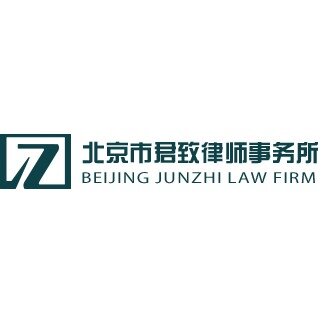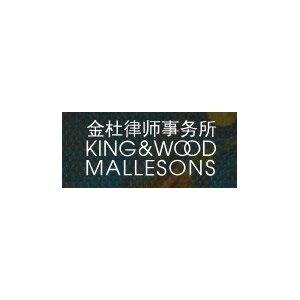Best Public-Private Partnerships (PPP) Lawyers in China
Share your needs with us, get contacted by law firms.
Free. Takes 2 min.
Or refine your search by selecting a city:
List of the best lawyers in China
About Public-Private Partnerships (PPP) Law in China
Public-Private Partnerships, generally known as PPP, are collaborative arrangements where the government and private sector entities cooperate to develop, finance, and operate projects that would typically be undertaken by the public sector alone. In China, PPP has become a pivotal tool for the construction and management of public infrastructure, such as transportation, utilities, health care, and education facilities. The PPP model seeks to leverage the strengths of both public oversight and private sector efficiency. As China's economic landscape continues to evolve, proper legal frameworks and standardised processes have been developed to regulate these partnerships, aiming to ensure transparency, feasibility, and protection of each party's interests.
Why You May Need a Lawyer
Entering a PPP project in China involves numerous legal complexities and regulatory requirements. Common situations where you may need legal assistance include:
- Drafting and negotiating PPP project agreements
- Navigating regulatory approval and government bidding processes
- Understanding risk allocation and financial structuring
- Resolving disputes related to contract execution or performance
- Complying with investment, environmental, land use, and tax regulations
- Interpreting changes in policy or law that impact ongoing or future projects
- Establishing Special Purpose Vehicles or joint venture structures
Due to the magnitude of investments and the long-term nature of most PPP projects, professional legal support is essential at the planning, operation, and termination stages.
Local Laws Overview
The legal context for PPP in China consists of several layers of law, regulations, and guidelines, both national and local. Although China does not have a single comprehensive PPP law, the following key elements are crucial:
- The Ministry of Finance issues core guidelines, including the "Notice on Regulating the Operation of Public-Private Partnership Integrated Information Platform Projects."
- The "Administrative Measures for Government and Social Capital Cooperation Mode" set basic rules and procedures for PPP arrangements.
- The National Development and Reform Commission issues guidance for project approvals, investment directions, and sector-specific standards.
- Local governments often issue implementing measures adapted to the local context, affecting project registration, land use, and procurement.
- Relevant laws such as the Government Procurement Law, Contract Law, Company Law, and Environmental Protection Law may also apply depending on the project specifics.
- PPP projects usually adopt concession or BOT (Build-Operate-Transfer) structures, affecting how contracts are drafted and enforced.
Understanding the intersection of these various laws and policies is fundamental for successful PPP arrangements in China.
Frequently Asked Questions
What is a PPP in the Chinese context?
It is a collaborative arrangement where government entities and private companies share resources, risks, and rewards in delivering public projects or services.
Who can initiate a PPP project in China?
PPP projects are usually initiated by government agencies at the central or local level, but private entities can also propose projects in sectors encouraged by policy guidelines.
What are the common PPP project models in China?
The most typical models include BOT (Build-Operate-Transfer), BOO (Build-Own-Operate), and concession agreements, each with different risk and ownership arrangements.
Are foreign investors allowed in Chinese PPP projects?
Yes, foreign investors can participate in many PPP projects, though there may be sector-specific restrictions or approval requirements.
What is the general process for participating in a PPP project?
It generally involves bidding or negotiation, project registration, financing, setting up a project company, and then performing the contracted works or services.
How long do PPP projects normally last in China?
Project durations vary but generally range from 10 to 30 years, depending on the contract and the nature of the infrastructure or service.
How are risks allocated in Chinese PPP contracts?
Risk is allocated between the public and private parties based on negotiation and project type, often following guidelines that ensure fair and manageable distribution.
What happens if there is a dispute in a PPP contract?
Disputes are often resolved through negotiated settlements, mediation, or arbitration. Litigation may be possible but is less common for PPP projects.
Are there minimum requirements for contract terms?
Yes, key terms such as project scope, remuneration, risk allocation, financing, and termination rights are typically set by regulations or sector guidelines.
Can PPP contracts be modified after signing?
Modifications are allowed in specific circumstances but usually require strict adherence to legal procedures and approval from relevant authorities.
Additional Resources
When seeking more information or legal assistance regarding PPP in China, consider the following resources:
- Ministry of Finance PPP Center (responsible for national policy and project library)
- National Development and Reform Commission (guidance for investment and project approval)
- Local Development and Reform Commissions at provincial and city levels
- China Public Private Partnerships Center
- Industry associations relevant to infrastructure and public services
- International organizations and chambers of commerce that provide publications on Chinese PPP practices
Next Steps
If you are considering participation in a PPP project in China or need advice regarding ongoing PPP issues, the following steps are recommended:
- Gather relevant information about your project or interest area, including sector and location
- Review the latest policies and guidelines issued by Chinese authorities
- Consult with a qualified lawyer who has experience with PPP projects, especially one familiar with local practices and multilingual negotiation
- Prepare key project documents and outline your business objectives and concerns before any negotiation or bidding process
- Monitor legal updates and industry developments to stay informed of any policy changes impacting PPP in China
Getting professional legal guidance early can help you navigate risks, avoid disputes, and structure your participation for long-term success in China's PPP market.
Lawzana helps you find the best lawyers and law firms in China through a curated and pre-screened list of qualified legal professionals. Our platform offers rankings and detailed profiles of attorneys and law firms, allowing you to compare based on practice areas, including Public-Private Partnerships (PPP), experience, and client feedback.
Each profile includes a description of the firm's areas of practice, client reviews, team members and partners, year of establishment, spoken languages, office locations, contact information, social media presence, and any published articles or resources. Most firms on our platform speak English and are experienced in both local and international legal matters.
Get a quote from top-rated law firms in China — quickly, securely, and without unnecessary hassle.
Disclaimer:
The information provided on this page is for general informational purposes only and does not constitute legal advice. While we strive to ensure the accuracy and relevance of the content, legal information may change over time, and interpretations of the law can vary. You should always consult with a qualified legal professional for advice specific to your situation.
We disclaim all liability for actions taken or not taken based on the content of this page. If you believe any information is incorrect or outdated, please contact us, and we will review and update it where appropriate.
Browse public-private partnerships (ppp) law firms by city in China
Refine your search by selecting a city.














